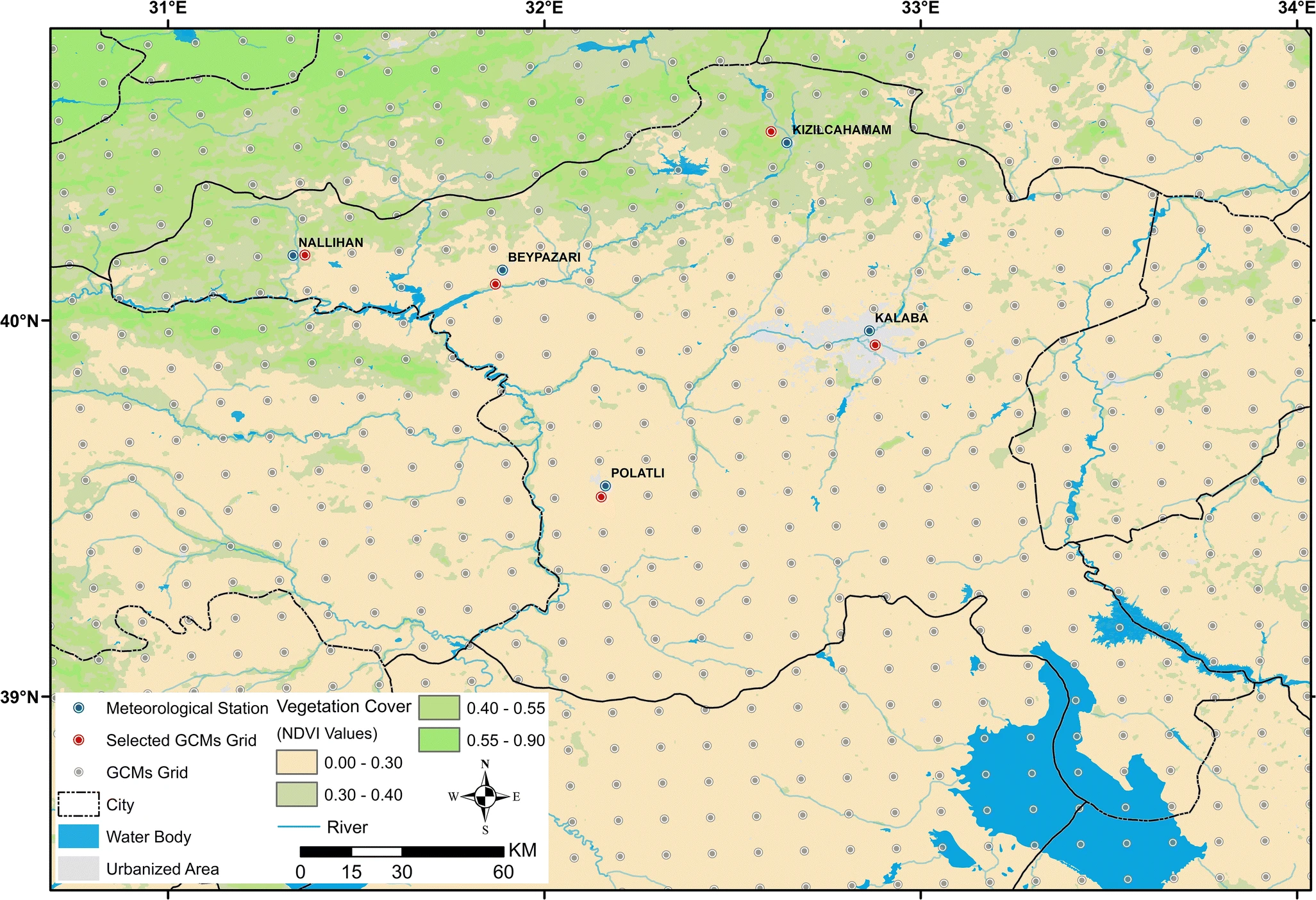The research article “Climate change impact assessment on mild and extreme drought events using copulas over Ankara, Turkey”, co-authored by METU member Assoc. Prof. Mustafa Tuğrul Yılmaz, has been published in Theoretical and Applied Climatology.
 Climate change, one of the major environmental challenges facing mankind, has caused intermittent droughts in many regions resulting in reduced water resources. This study investigated the impact of climate change on the characteristics (occurrence, duration, and severity) of meteorological drought across Ankara, Turkey. To this end, the observed monthly rainfall series from five meteorology stations scattered across Ankara Province as well as dynamically downscaled outputs of three global climate models that run under RCP 4.5 and RCP 8.5 scenarios was used to attain the well-known SPI series during the reference period of 1986–2018 and the future period of 2018–2050, respectively. Analyzing drought features in two time periods generally indicated the higher probability of occurrence of drought in the future period. The results showed that the duration of mild droughts may increase, and extreme droughts will occur with longer durations and larger severities. Moreover, joint return period analysis through different copula functions revealed that the return period of mild droughts will remain the same in the near future, while it declines by 12% over extreme droughts in the near future.
Climate change, one of the major environmental challenges facing mankind, has caused intermittent droughts in many regions resulting in reduced water resources. This study investigated the impact of climate change on the characteristics (occurrence, duration, and severity) of meteorological drought across Ankara, Turkey. To this end, the observed monthly rainfall series from five meteorology stations scattered across Ankara Province as well as dynamically downscaled outputs of three global climate models that run under RCP 4.5 and RCP 8.5 scenarios was used to attain the well-known SPI series during the reference period of 1986–2018 and the future period of 2018–2050, respectively. Analyzing drought features in two time periods generally indicated the higher probability of occurrence of drought in the future period. The results showed that the duration of mild droughts may increase, and extreme droughts will occur with longer durations and larger severities. Moreover, joint return period analysis through different copula functions revealed that the return period of mild droughts will remain the same in the near future, while it declines by 12% over extreme droughts in the near future.
Afshar, M. H., Şorman, A. Ü., Tosunoğlu, F., Bulut, B., Yilmaz, M. T., & Danandeh Mehr, A. (2020). Climate change impact assessment on mild and extreme drought events using copulas over ankara, turkey. Theoretical and Applied Climatology, 141(3-4), 1045-1055. doi:10.1007/s00704-020-03257-6
Article access: https://link.springer.com/article/10.1007%2Fs00704-020-03257-6
Assoc. Prof. Mustafa Tuğrul Yılmaz |
Web of Science/Publons Researcher ID: W-4730-2017 |
| tuyilmaz@metu.edu.tr | Scopus Author ID: 57191906140 |
| About the author | ORCID: 0000-0001-5094-1878 |
Other authors:
Afshar, M. H., Şorman, A. Ü. (METU), Tosunoğlu, F., Bulut, B. (METU), & Danandeh Mehr A.
Acknowledgments:
We thank the Turkish State Meteorological Service for providing precipitation data of both reference and future scenarios, the ESA CCI Land Cover project for the global land cover classification map, and the Land Processes Distributed Active Archive Center (LP DAAC; ?lpdaac.usgs.gov ?) for providing access to the MODIS data used in this study.










